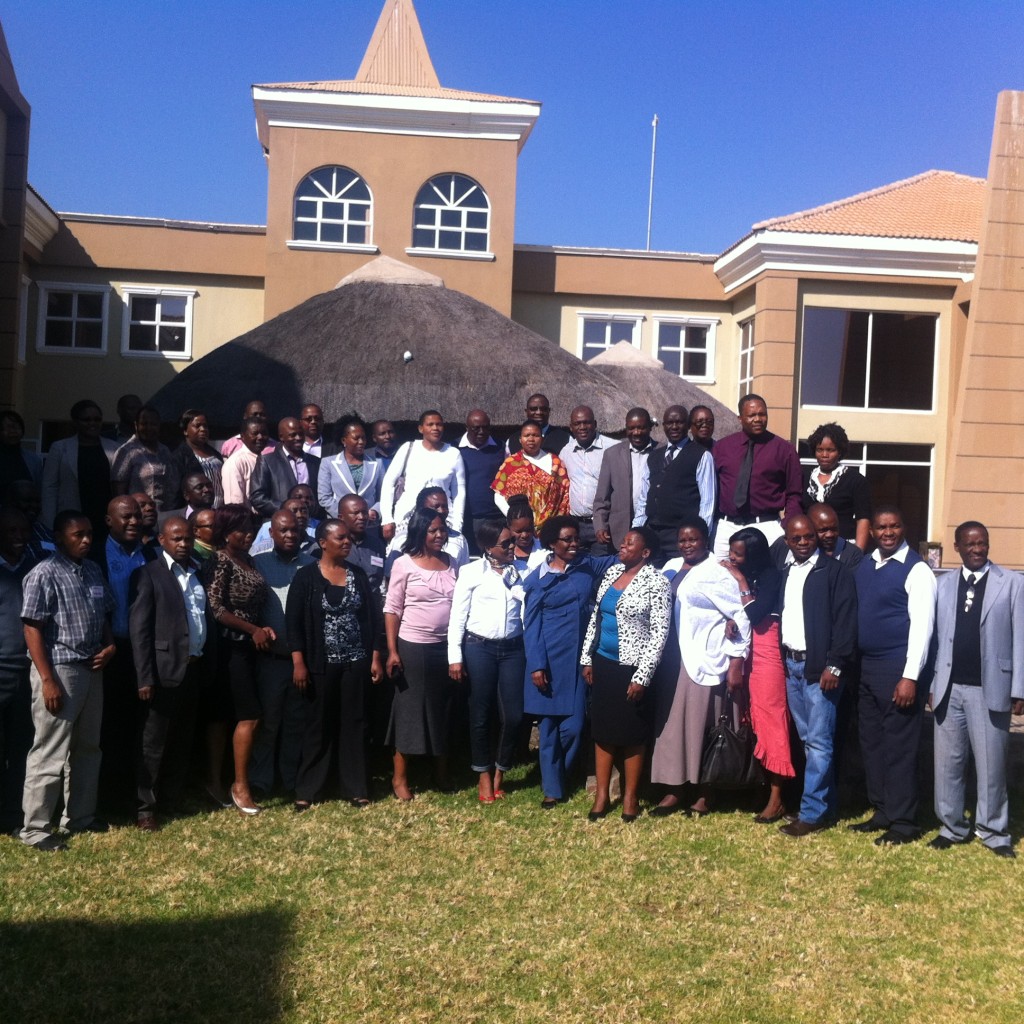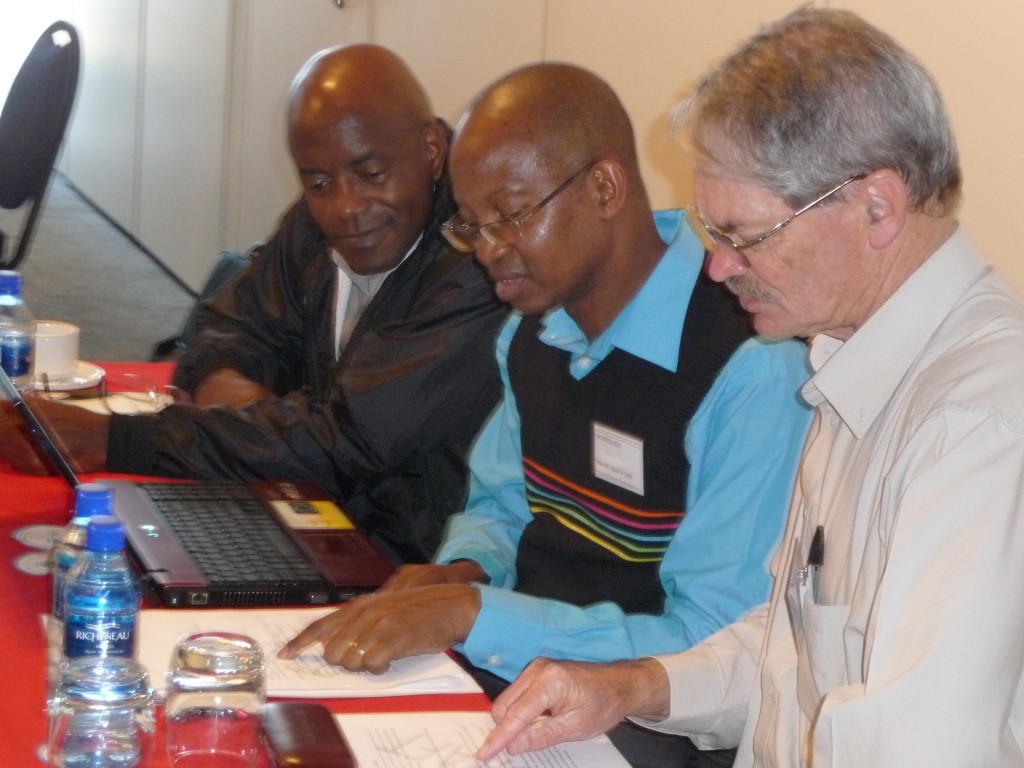
Strategic Planning Workshop and Stakeholder’s Meeting Attendees, Palapye Botswana, August 7, 2014.
The Botswana National Laboratory Strategic Plan was developed in 2009 and covered the five years 2009-2014. Following the launch of this strategic plan, significant progress has been made in support of the MOH’s vision of excelling in providing customer services consistent with global standards. The first edition Strategic Plan focused on seven key result areas, namely:
1. Institutional and organization framework
2. Policy , legal and regulatory framework
3. Human Resources management
4. Laboratory support services and facilities
5. Laboratory quality management systems
6. Laboratory Services; and
7. Monitoring and Evaluation
The Botswana Ministry of Health requested assistance from the Association of Public Health Laboratories (APHL) to facilitate a review of progress toward the 2009-2014 goals and objectives, and for developing an updated 2015-2019 Strategic Plan. APHL consultants John Pfister and Isatta Wurie, and APHL staff member Haroun Habib worked in Botswana from 7/28-8/8/2014 to:
1. Review existing documents including the Laboratory Policy Draft, Health Sector Strategic Plan, Establishment of Botswana Public Health Laboratory, and the 2009-2014 Botswana National Laboratory Strategic Plan.
2. Meet with Botswana partners to review progress made toward the 2009-2014 Strategic Plan goals and objectives.
3. Assist with planning process for development of Botswana National Laboratory Strategic Plan 2015-2019.
4. Assist with preparation of agenda and presentation materials for the Strategic Planning Workshop and Stakeholders Meeting.
5. Facilitate Strategic Planning Workshop and Stakeholder’s Meeting.
6. Provide consultation to guide development of Strategic Plan 2015-2019.
7. Take lead in completing the Draft document “Botswana National Laboratory Strategic Plan 2015-2019”.
The Final Draft of the 2015-2019 Botswana National Laboratory Strategic Plan was provided to the Botswana Ministry of Health on 9/12/2014 for distribution and review by the technical working group.






